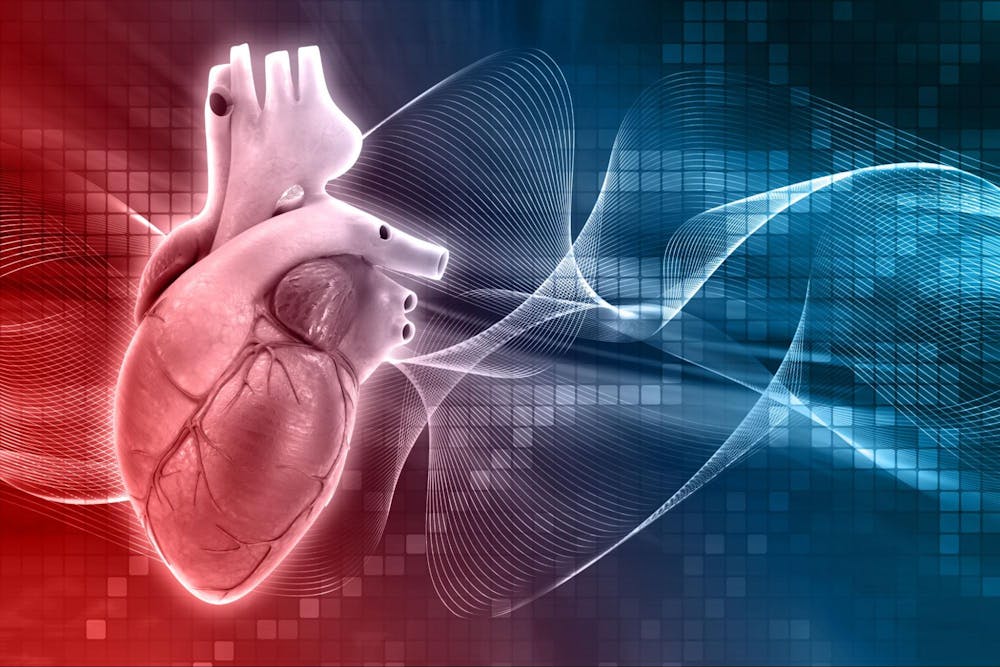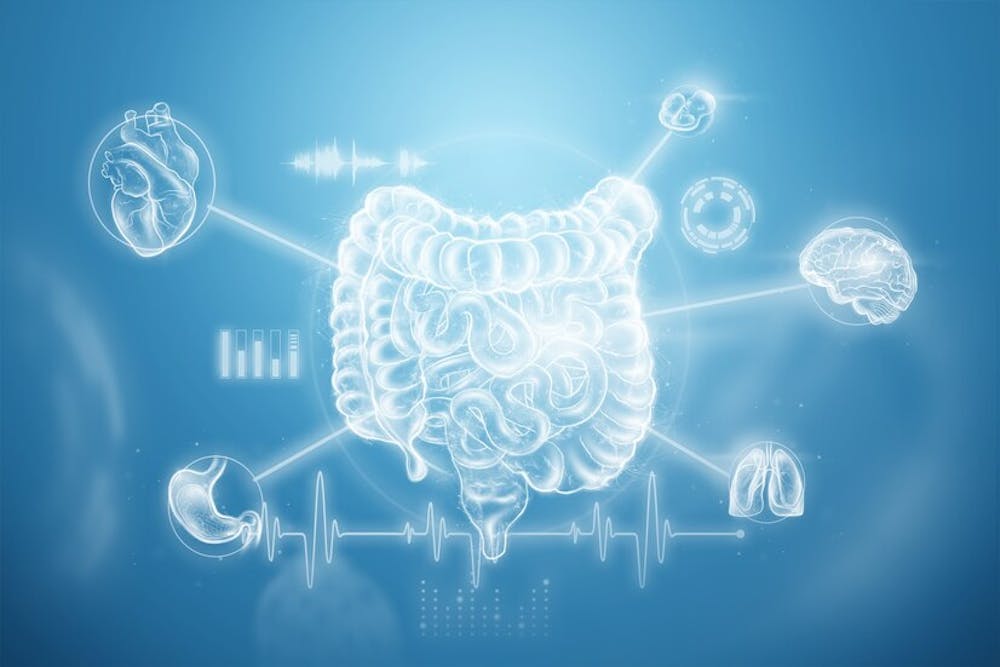Did you know that your gut and heart have a unique connection that can significantly influence your overall health? The proverbial saying that "the way to a man's heart is through his stomach" might be a bigger truth than we think. Recent research has shed some light on the Gut-Heart Connection, raising the possibility that our gut may hold the key to a healthy heart.
Let’s uncover how the state of our digestive system may have a more profound impact on our hearts than you might have ever imagined. Keep reading to discover the secrets and learn how to protect both your gut and heart for optimal health.
Recommended: Understanding The Gut-Brain Connection - Reverse Factor
The Gut And Heart Connection
The gut heart connection is a topic of increasing interest among researchers. It refers to the link between the health of the gut microbiome and the risk of cardiovascular disease. Recent studies have suggested that imbalances in the gut microbiome can lead to inflammation.

What we feed our stomach can have both beneficial and bad effects on heart health. The creation of metabolites by gut microorganisms during food breakdown is one way that the gut has an impact on heart health. When gut bacteria consume choline, a vitamin found in red meat, fish, chicken, and eggs, they produce trimethylamine (TMA). Trimethylamine is changed by the liver into trimethylamine N-oxide. It is a compound that is highly related to the formation of arterial plaque. Individuals with elevated TMAO levels in their bloodstream are at a higher risk of experiencing heart attacks or strokes. Reducing red meat consumption can prevent the stomach from producing too much TMAO because it is a major source of TMA. That’s why our heart disease reversal program focuses on a plant-based diet for improving heart health.
Must Read: The 8 Best Fruits, Good For The Heart Health
Importance Of Stomach And Heart Connection
The delicate relation between heart and stomach is crucial for general health and well-being. The heart and the stomach work closely together for digestion and nutrient absorption. The digestion process begins in the stomach, where food is broken down and nutrients are extracted.

The circulatory system then delivers this nutrient-rich blood to the heart, which pumps it to the rest of the body. The stomach also has a part to play in controlling blood sugar levels, which directly impacts heart health. Inflammation, obesity, and metabolic problems are just a few of the risk factors for heart disease. All these have been related to imbalances in gut bacteria. So, prioritizing the heart gut connection first can lead to a happier and more energetic life. You can achieve good health by healing gut health with the help of the most trusted gut health treatment India.
See More: Eat These To Keep Your Heart Fit And Fine Till 80 Years Of Age
How To Maintain Stomach Heart Connection?
Many people living with heart conditions want to know how to stop and reverse heart disease in the best way possible. Well, all you need to do is follow the steps given below to improve your heart and gut health.
1. Plant-Based Diet
Consume heart healthy foods that include a variety of fruits, vegetables, and grains. Also include fiber-rich foods in your diet for heart disease to support digestion and promote a healthy gut microbiome.
2. Portion Control
You should practice mindful eating and avoid overeating, as excessive food intake can put a strain on both the stomach and heart. Aim for smaller and more frequent meals for better digestion and to avoid the feeling of bloating or heaviness.
3. Stay Hydrated
Make sure you're getting enough water throughout the day to stay hydrated. Drinking enough water throughout the day promotes cardiovascular, digestive, and nutrient absorption.
4. Engage in Regular Physical Activity
Regular physical activity will keep your heart and stomach healthy. Exercise boosts heart health, supports a healthy gut, and lowers inflammation.
5. Stress Management
Chronic stress can harm your heart and stomach. So, engage in activities that help you relax such as yoga, deep breathing exercises, meditation, or your favorite activity.
6. Get Enough Sleep
Get good sleep each night because insufficient sleep can have an impact on cardiovascular health. Get 7-8 hours of restful sleep each night to keep your body fit.
7. Say No To Alcohol And Tobaco
The stomach-heart link can be damaged by excessive alcohol consumption and tobacco usage. To reduce the risk of digestive issues and heart diseases, you should limit alcohol use and avoid smoking.
Best Foods To Improve Gut Health
1. Apples
Apples are not only a tasty fruit, but one of the best foods for your heart and intestinal health. Apples are high in dietary fiber, particularly pectin, which feeds the good bacteria in the stomach. This fiber promotes regular bowel movements, supports healthy digestion, and helps prevent constipation. Apples also contain polyphenols, which may support a better gut environment.
2. Bananas
Bananas, which are a rich source of dietary fiber and necessary nutrients, can improve the health of your digestive system. Its high fiber content promotes regular bowel motions and prevents constipation. It contains beneficial bacteria that help in healthy digestion and nutrient absorption. So, bananas are the best foods for digestive health that can keep your gut in good condition.
3. Papaya
Papaya is a tropical fruit that is a delicious treat for every age group. It is also one of the best foods to eat for gut health. Papaya contains an enzyme called papain. It helps break down proteins and facilitates the digestion process. Its anti-inflammatory property can help soothe the inflammation in the gut.
4. Leafy greens
Leafy greens are important for a healthy digestive tract as they are a rich source of fiber, vitamins, minerals, and antioxidants. The high fiber content of these vegetables promotes regular bowel movements.
Additionally, leafy greens are a great source of prebiotics, which feed the good bacteria in your stomach. These microorganisms support a healthy gut microbiome and effective digestion and nutrition absorption.
5. Carrots
These crunchy orange root vegetables are another best foods for digestive health. Carrots contain a unique type of fiber called pectin, which acts as a prebiotic and serves as nourishment for beneficial gut bacteria. These microorganisms are essential for maintaining a healthy gut microbiome. They also contain phytochemicals and antioxidants that support a healthier digestive system.
Healthy Foods For Heart Disease
1. Whole Grains
If you want to take care of the heart naturally you must include whole grains in your diet. Whole grains retain their bran, germ, and endosperm, which are rich in fiber and nutrients. Its high fiber content helps lower cholesterol and maintains normal blood pressure levels. Whole grains are also rich in antioxidants, vitamins, and minerals, which are beneficial for your heart health.
2. Nuts and Seeds
Nuts and seeds are an excellent addition to your heart healthy diet. The monounsaturated and polyunsaturated fats in nuts and seeds, can minimize the risk of heart disease. Consuming nuts and seeds can also help prevent oxidative stress and inflammation.
3. Fruits & Vegetables
Fruits and vegetables are excellent foods to improve heart health. These plant-based heart diet foods boost overall heart health and help reduce the risk of heart disease. These foods include fiber, which helps with digestion, and maintain healthy cholesterol levels. These foods are rich in nutrients and low in calories, making them excellent options for weight management.
Final Thoughts –
Our gut plays a crucial role in nutrient absorption and immune system regulation. You can maintain a healthy gut microbiome, and heart-healthy lifestyle by putting a priority on a diet rich in fiber, and antioxidants. Making healthy lifestyle choices can help you maintain a healthy gut-heart connection.
Frequently Asked Questions-
Is the gut connected to the heart?
Yes, the gut and the heart are connected through a number of mechanisms. It includes the gut microbiome’s impact on cardiovascular health.
Can heart problems affect your gut?
Yes, heart problems can affect the digestive system, resulting in indigestion, nausea, and changes in bowel habits.
Can a bad gut cause heart palpitations?
The gut-heart link and the action of the vagus nerve may allow an unbalanced gut or gut disorders, to potentially cause heart palpitations.
What are the symptoms of a leaky gut?
Leaky gut symptoms might include digestive problems like bloating, gas, and diarrhea.
How can I improve my gut health to benefit my heart?
Adopting a fiber-rich diet, controlling stress, working out daily are the best ways to improve gut health.
What are the best foods for gut health?
A healthy gut diet includes fiber-rich foods like fruits, vegetables, whole grains, and legumes.
What are the best foods for heart health?
The best foods for heart health include fruits, vegetables, whole grains, and nuts. You should also try to limit processed foods, sugary beverages, and excessive salt intake for improving your heart health.
Can gut health impact blood pressure?
An increase in blood pressure has been linked to dysbiosis and bacterial imbalances in the gut. Promoting a healthy gut through lifestyle changes may help you maintain optimal blood pressure levels.




